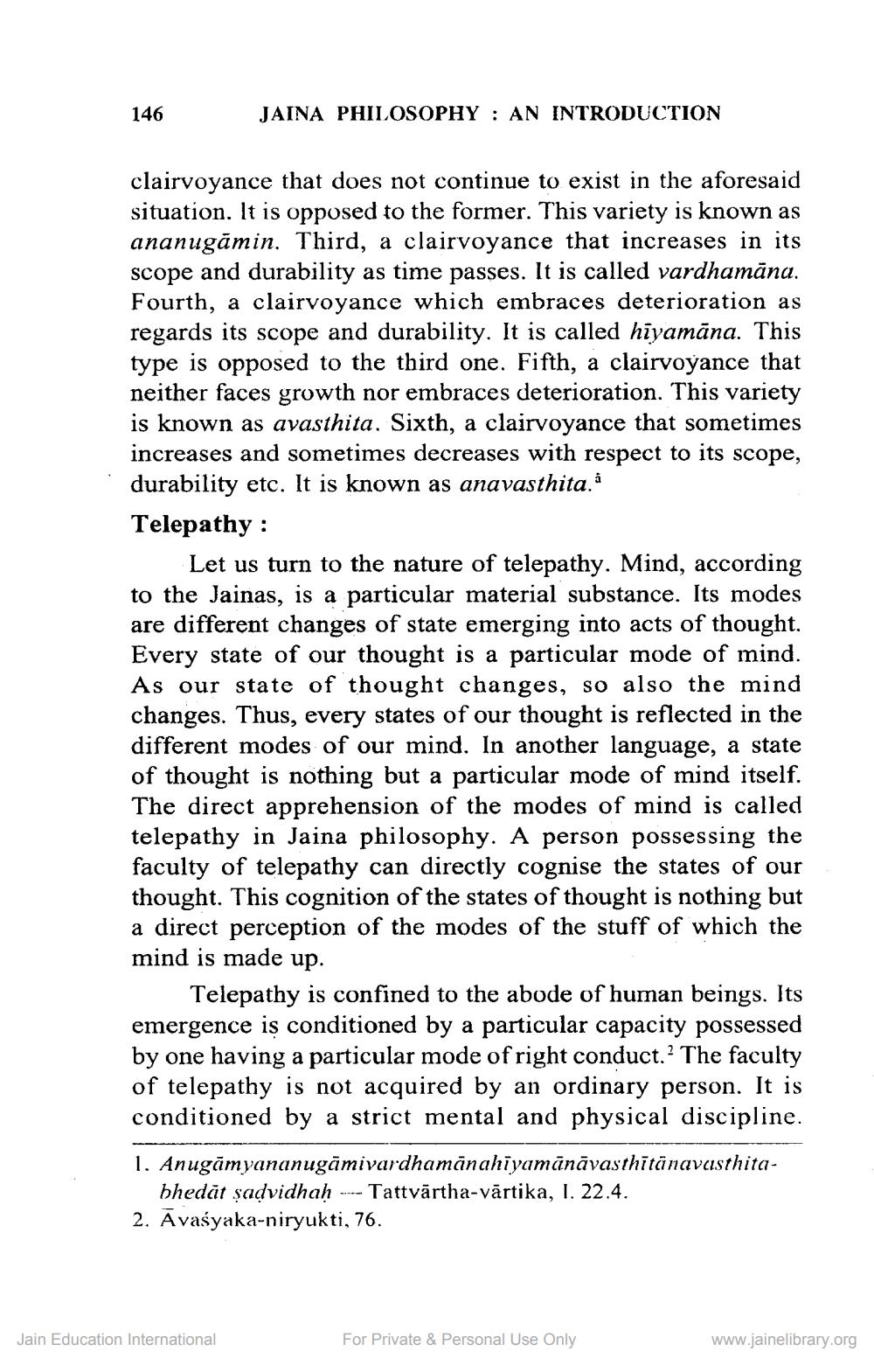________________
146
JAINA PHILOSOPHY : AN INTRODUCTION
clairvoyance that does not continue to exist in the aforesaid situation. It is opposed to the former. This variety is known as ananugămin. Third, a clairvoyance that increases in its scope and durability as time passes. It is called vardhamāna. Fourth, a clairvoyance which embraces deterioration as regards its scope and durability. It is called hīyamāna. This type is opposed to the third one. Fifth, a clairvoyance that neither faces growth nor embraces deterioration. This variety is known as avasthita. Sixth, a clairvoyance that sometimes increases and sometimes decreases with respect to its scope, durability etc. It is known as anavasthita. Telepathy :
Let us turn to the nature of telepathy. Mind, according to the Jainas, is a particular material substance. Its modes are different changes of state emerging into acts of thought. Every state of our thought is a particular mode of mind. As our state of thought changes, so also the mind changes. Thus, every states of our thought is reflected in the different modes of our mind. In another language, a state of thought is nothing but a particular mode of mind itself. The direct apprehension of the modes of mind is called telepathy in Jaina philosophy. A person possessing the faculty of telepathy can directly cognise the states of our thought. This cognition of the states of thought is nothing but a direct perception of the modes of the stuff of which the mind is made up.
Telepathy is confined to the abode of human beings. Its emergence is conditioned by a particular capacity possessed by one having a particular mode of right conduct. The faculty of telepathy is not acquired by an ordinary person. It is conditioned by a strict mental and physical discipline.
1. Anugāmyananugāmivardhamanahīyamānāvasthitänavasthita
bhedāt sadvidhah ---- Tattvārtha-vārtika, I. 22.4. 2. Avasyaka-niryukti, 76.
Jain Education International
For Private & Personal Use Only
www.jainelibrary.org




